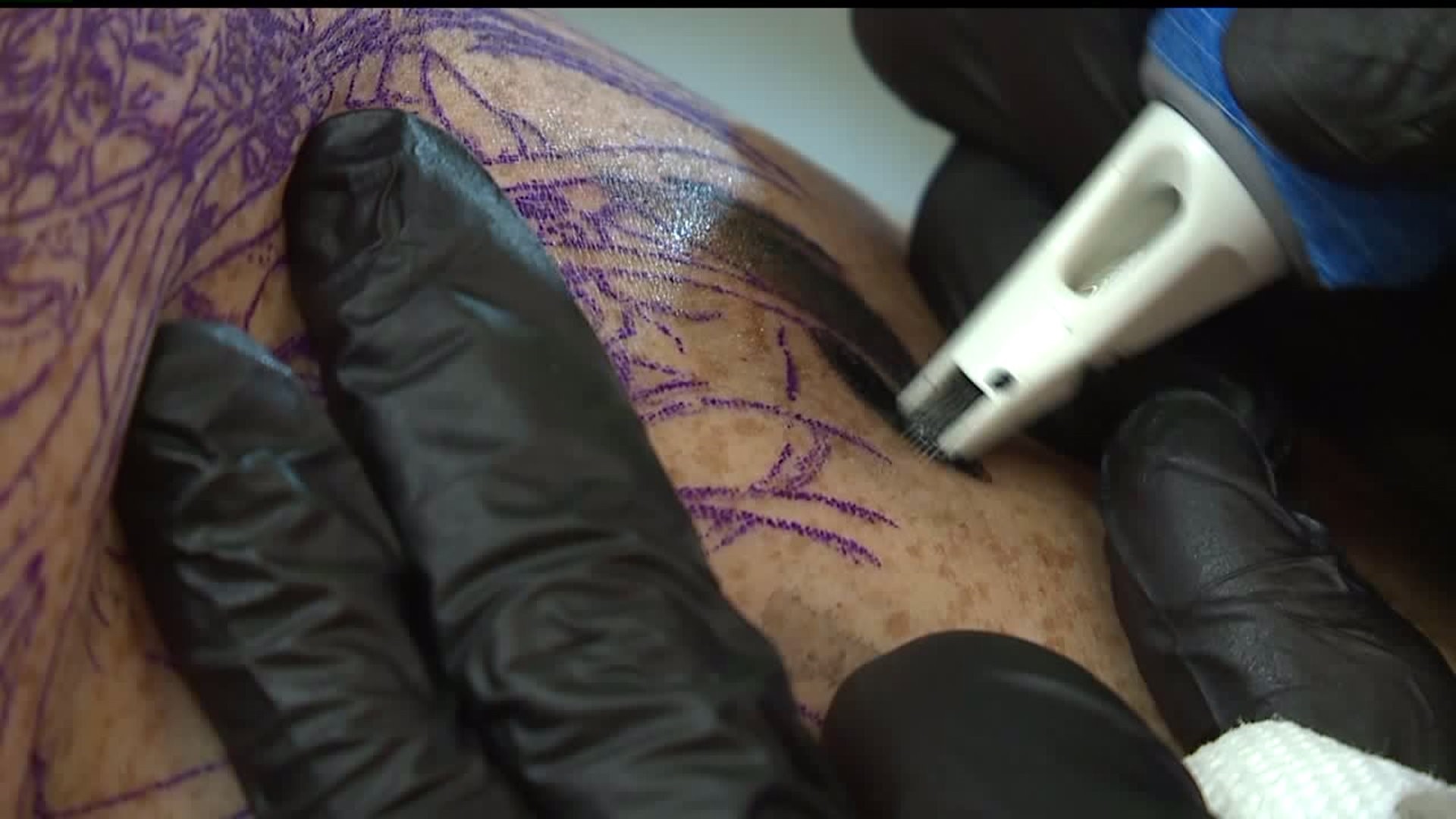Jow Benkert, a tattoo artist with York Ink Tattoo & Body Piercing in York, gets ready to give a tattoo the same way a doctor prepares to perform a surgery.
Every piece of equipment is tightly wrapped in plastic. Razors and needles are disposed of in medical waste bins. Rubber gloves snap off Jow's hands and into a waiting trash can by the minute, each time he performs a different function.

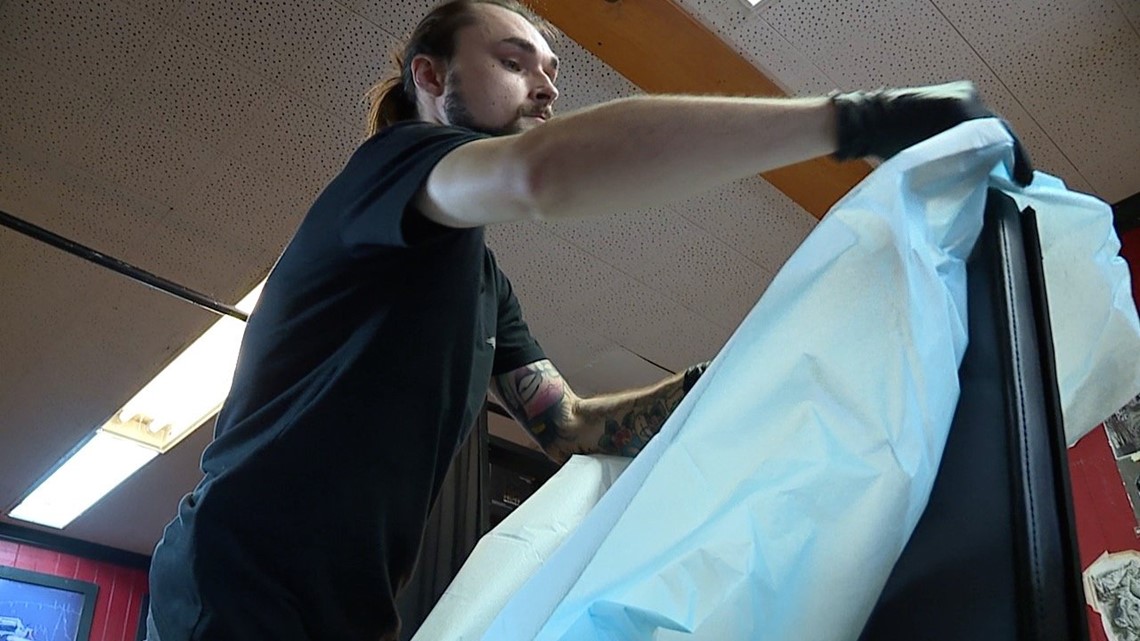
"It's all infection prevention, man," he says. "You don’t want any of your blood to cross-contaminate with anybody else's."

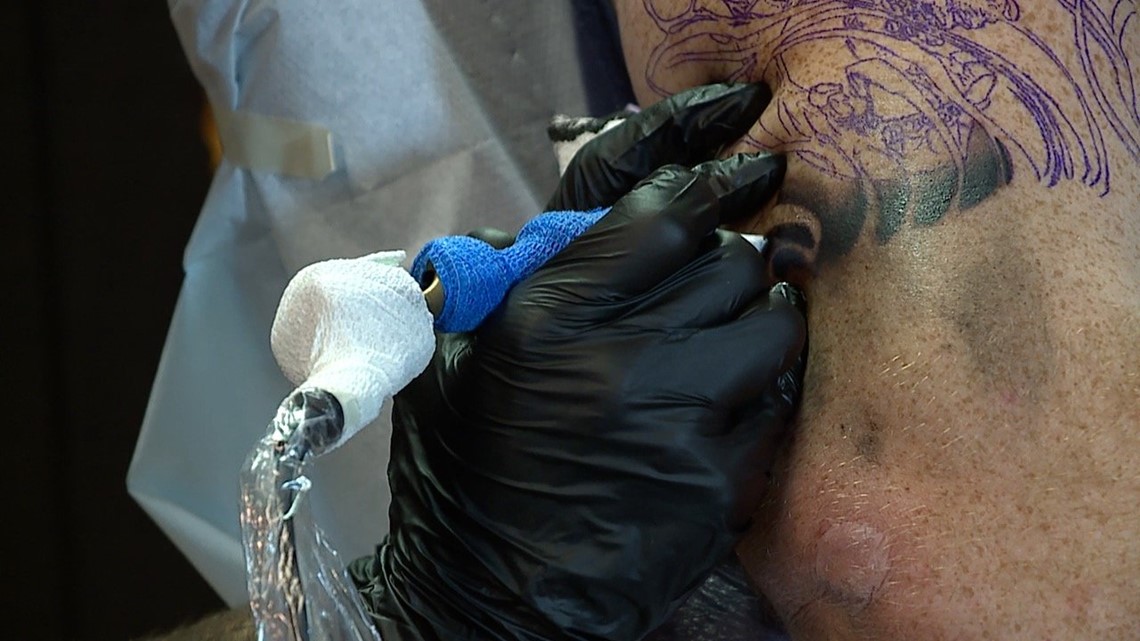
In Pennsylvania, its tattoo industry is unregulated. Jow claims this has opened the door for amateurs -- referred to as "scratchers," or basement artists by those in the business -- who offer tattoos without the quality or cleanliness of a professional shop but for a significantly lesser price.
For professionals like Jow, that means putting an extra emphasis on quality he says you can only get in a shop.
"It's not about looking cool," Benkert said. "It’s about doing a good tattoo and having an end result that heals correctly and provides a client with a piece of happiness."

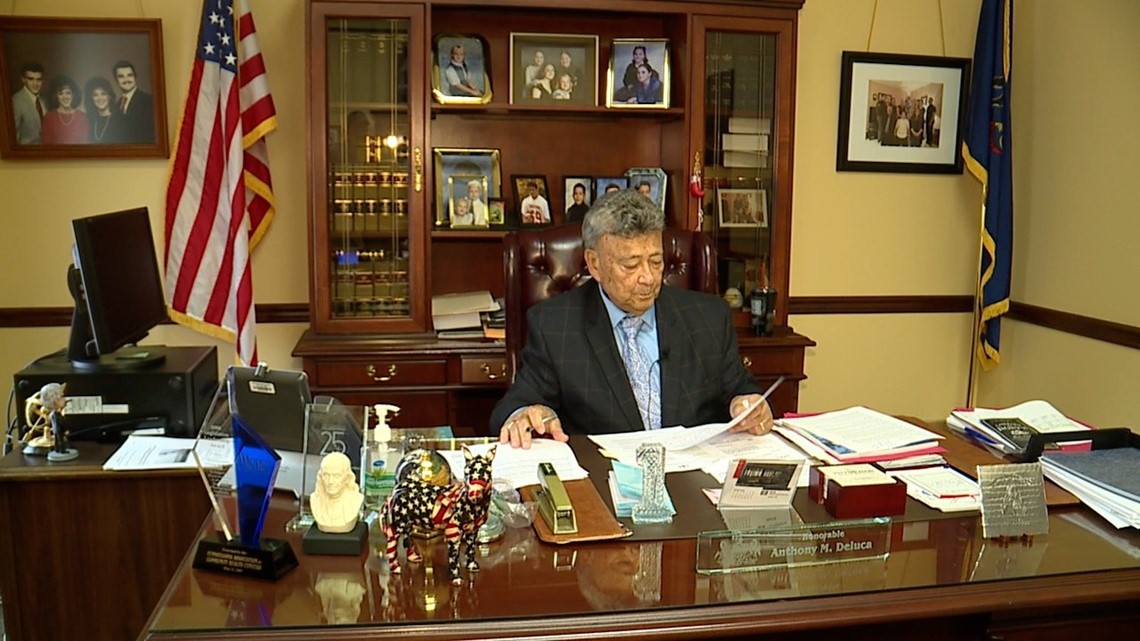
Pennsylvania is one of nine states, plus Washington D.C., which have no laws regulating its shops. For years, lawmakers in Harrisburg have tried to regulate its tattoo industry, but with no luck.
State Representative Tony DeLuca (D-Allegheny) has been its biggest advocate. Every session since 2001 -- nine in all -- DeLuca has proposed bills designed to put laws in place to increase safety standards for tattoo artists. His legislation would also ban the practice of tongue splitting.
DeLuca says his push began when he learned of a local tattoo shop not disposing its needles properly.
"We inspect restaurants but we don’t inspect the places that affect peoples lives?" DeLuca wondered aloud. "It makes no sense. People don’t realize the possibility of AIDS and hepatitis. They don’t realize the danger in this stuff."
DeLuca's most recent tattoo regulation bill, HB456, has been his most successful attempt yet. Unlike previous bills, this one was heard and voted on by the Pennsylvania House of Representatives, passing by an overwhelming 173-17 margin. The bill was referred to the Senate Health and Human Services Committee in April. More than six months later, as the Senate recessed for the remainder of the session, DeLuca's bill was still not discussed in committee. Jennifer Wilson, the chief of staff for committee chairperson Senator Lisa Baker (R-Luzerne, Susquehanna) wrote FOX43 in an e-mail, "We ran out of time, so it will need to be reintroduced."

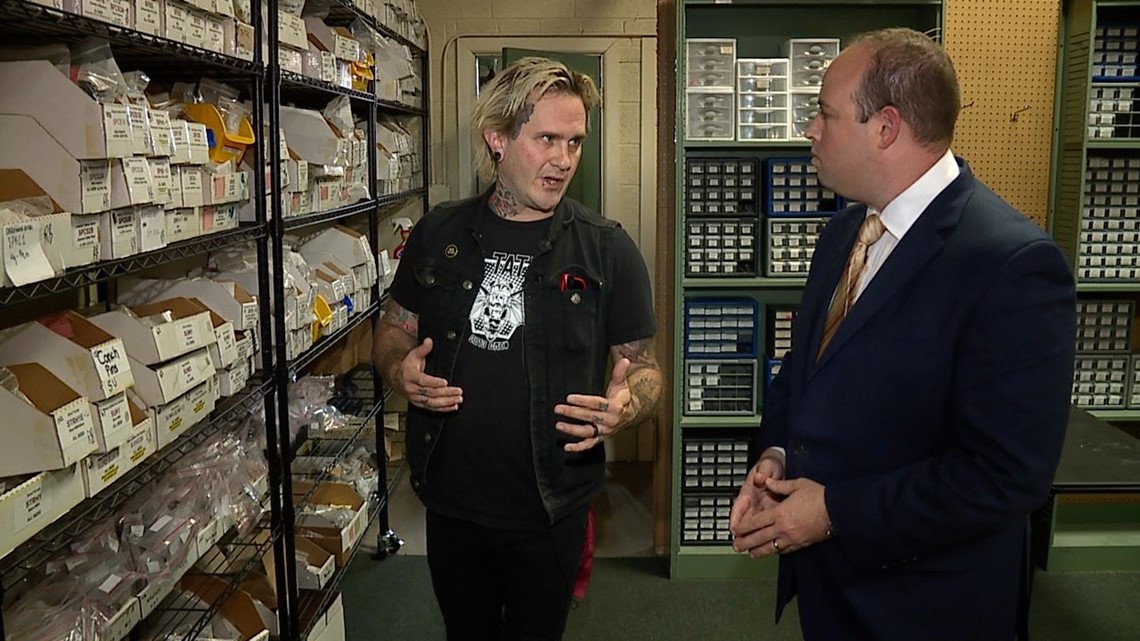
Rep. DeLuca is accusing Sen. Baker of playing partisan politics in not advancing his bill.
DeLuca's bill would require shops and artists to obtain a license, and the Department of Health to inspect shops once a year and perform background checks on artists. FOX43 reached out to the Pa. Department of Health, which only said it does not comment on pending legislation.
DeLuca maintains there is a problem with unregulated shops that is not being addressed by the General Assembly.
"We can’t get a handle on it because the Health Department doesn’t inspect them," he said. "We don’t know how many infections there are out there but the medical profession is for (regulation)."
Some people in the tattoo profession argue DeLuca's legislation doesn't go far enough. Paul Sorrels, a tattoo artist with 717 Tattoo in Harrisburg and owner of tattoo and piercing supply and distribution center Razorblade Pro, says HB456, and its previous incarnations, did not do enough to address the issue of amateur tattooers.
Therefore, what Sorrels does is try to cut off their supply. With Razorblade Pro, he says he most tattoo and piercing stores in the capital region come to him for materials. He says he is able to monitor all buyers, and he won't sell to anyone who isn't part of a professional shop.
"If every supplier was more concerned about who was getting their supplies and made it difficult for an amateur tattooer to get supplies they need, that would help curb the problem," Sorrels said.

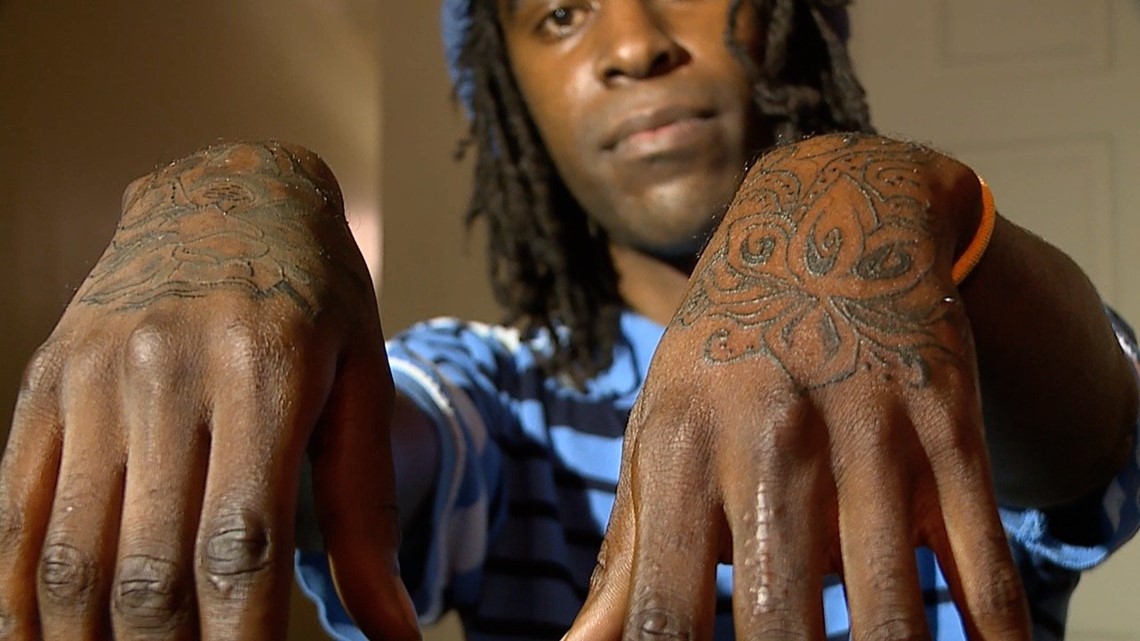
Sorrels proposes two changes to Rep. DeLuca's legislation. First, he says, is establish a board of tattoo experts to perform inspections, similar, he says, to what was established for Pennsylvania's medical marijuana industry. Second, according to Sorrels, is any bill should legislate suppliers instead of shops.
Sorrels already self-regulates his shops.
"If you ask 10 tattooers what the biggest issue facing tattooing today," Sorrels said, "eight will say crap tattooing; people who don’t know what they’re doing."
However, for York resident Kwame Jackson, his arms covered up and down with sleeves of tattoos, he's never spent a moment inside a professional shop and doesn't have an issue with the quality of any of his tattoos, nor has he ever had any medical issues.
Jackson got his first tattoo at 17 years old. Now 26, he estimates having 18 total tattoos on his arms. Not a single one, he says, was done in a shop.
There are multiple reasons why Jackson says he hasn't gone to a shop for a tattoo, not the least of which is money. He estimates a tattoo that would typically cost around $1,000 in a shop could run you a far less expensive $160 to $200 in someone's home.
He also says there is a toughness aspect to getting a tattoo from a scratcher. Jackson refers to it as a "rite of passage."
"The dudes I get tattoos from are tough. Real gangsters," Jackson says. "So when they say 'You’re my favorite person to tattoo because you don’t complain,' it makes me feel good."
Jackson admits it can be shady, but ultimately worth it, and if amateur artists are put out of a job due to a regulated industry, he fears it would lead to more poverty, and ultimately more crime.
However, professionals like Jow Benkert argue amateurs -- "scratchers" as he calls them -- ultimately put a stain on the business.
"People on that side don’t know they’re doing it wrong because they don’t have anyone there to show them the right way," he said. "It’s not for everybody. It's a lifestyle and something you got to commit to."

